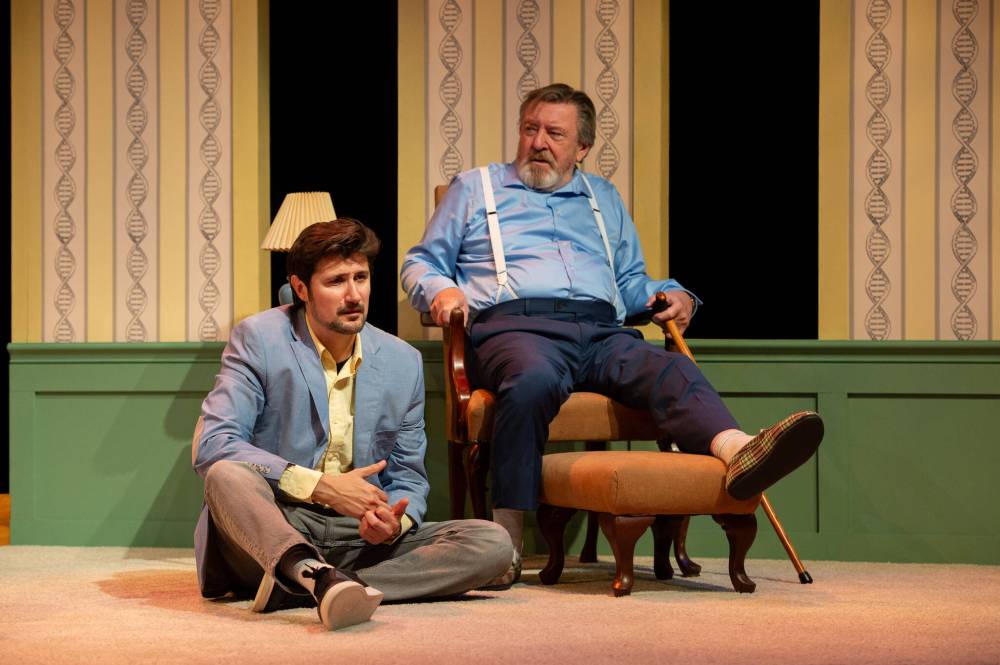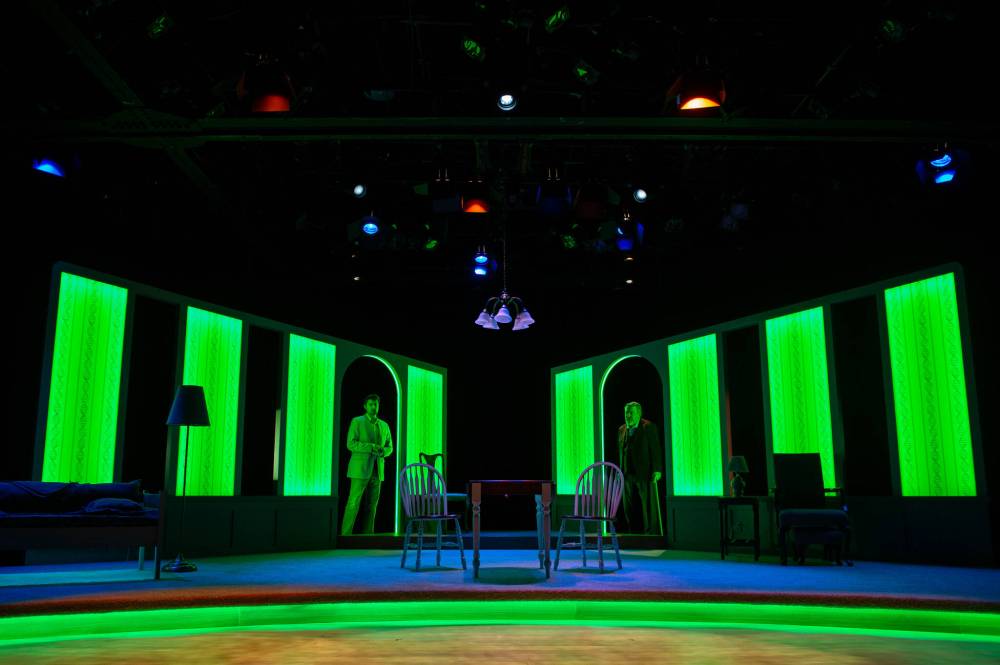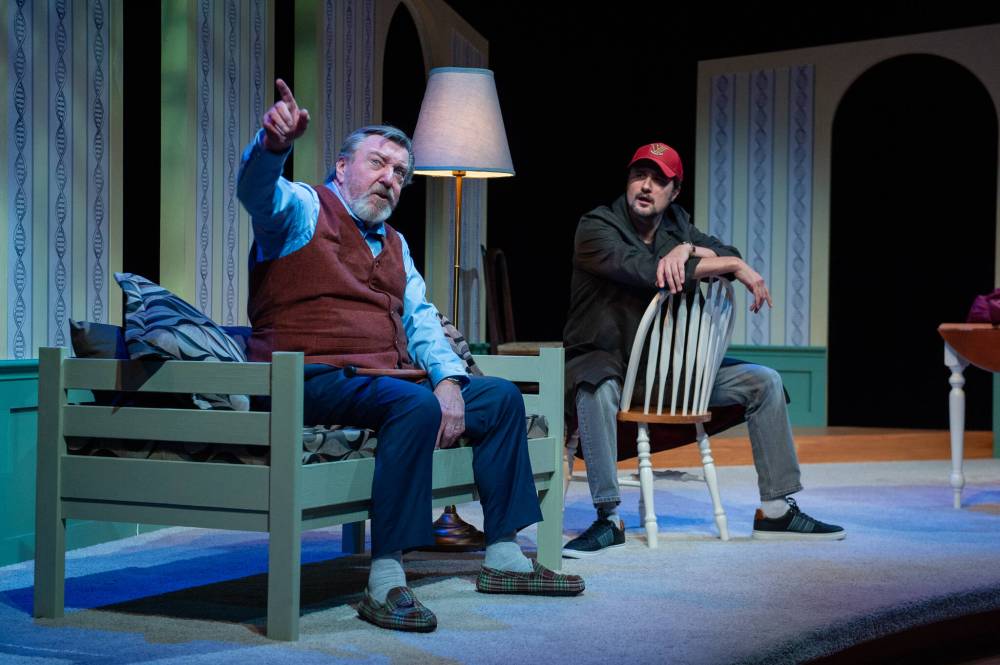In the glare of many sons
Identity, family, connection explored in cloning drama
Advertisement
Read this article for free:
or
Already have an account? Log in here »
To continue reading, please subscribe:
Monthly Digital Subscription
$0 for the first 4 weeks*
- Enjoy unlimited reading on winnipegfreepress.com
- Read the E-Edition, our digital replica newspaper
- Access News Break, our award-winning app
- Play interactive puzzles
*No charge for 4 weeks then price increases to the regular rate of $19.00 plus GST every four weeks. Offer available to new and qualified returning subscribers only. Cancel any time.
Monthly Digital Subscription
$4.75/week*
- Enjoy unlimited reading on winnipegfreepress.com
- Read the E-Edition, our digital replica newspaper
- Access News Break, our award-winning app
- Play interactive puzzles
*Billed as $19 plus GST every four weeks. Cancel any time.
To continue reading, please subscribe:
Add Free Press access to your Brandon Sun subscription for only an additional
$1 for the first 4 weeks*
*Your next subscription payment will increase by $1.00 and you will be charged $16.99 plus GST for four weeks. After four weeks, your payment will increase to $23.99 plus GST every four weeks.
Read unlimited articles for free today:
or
Already have an account? Log in here »
‘Can we talk about what you did?”
The question — asked of a father (Victor Ertmanis) by a son (Rodrigo Beilfuss) — is simple enough.
But the answer, like every word spoken in Caryl Churchill’s A Number, is delivered almost as though elicited by the resuscitative power of an electric shock.

Dylan Hewlett / Royal Manitoba Theatre Centre
In the cloning drama A Number, Rodrigo Beilfuss, seated at left beside Victor Ertmanis, plays three roles.
“Yes, of course … I’m not sure… where… what…”
It isn’t quite clear what a typical evening looks like for this pair, but as soon as opening piano chords twinkle and the old man’s apartment — coated in double-helixed wallpaper hung in segments of three — is bathed in a radiating glow, there’s little doubt that complex familial truths will soon be brought to light.
Churchill makes no secret of that: in the opening scene, the son has just learned that he wasn’t daddy’s only little boy — his uniqueness has been damaged, his identity weakened, by means of duplication.
Not just one, not just two, but a number of physically identical doppelgangers are out there.
In just one hour, with no intermission, A Number forces its base pairs — and the actors portraying them — into the eeriest corners of remorse, repressed grief and internal angst, lending hard-earned realism to a conceptual drama that never feels as far-fetched as it should.
That’s a credit to director Alex Poch Goldin’s airy approach to the text, which gives both Ertmanis and Beilfuss the opportunity to massage the play’s most effective drama and its most anxious comedy with expert precision.
No small feat: Churchill’s dialogue interlocks and often moves past itself, with streams of thought abruptly left behind without immediate resolution.

Dylan Hewlett / Royal Manitoba Theatre Centre
Ksenia Broda-Milian’s lighting veers from the laboratorial into the supernatural.
The spaces between the words are filled with a well-rounded soundscape designed by Ashley Au with Natanielle Felicitas; their interludes are essential to the characters’ sense of both impending doom and loss of their respective pasts.
Kara Pankiw’s set — a spare, three-tiered apartment loaded with emotional memory — works in perfect tandem with Ksenia Broda-Milian’s lighting, which veers from the laboratorial into the supernatural.
A fixture on local stages, Beilfuss, playing three roles, showcases a broad spectrum of communication styles, alternating between shivering nebbish, brooding ne’er-do-well and round-faced square with ease.
For a sparring partner, Beilfuss couldn’t ask for better than Ertmanis, a veteran of nine seasons with the Stratford Festival who hasn’t appeared with the Royal Manitoba Theatre Centre since 1989, when he played Marco in Arthur Miller’s A View From the Bridge.
While Beilfuss’s characters have the benefit of exits and entrances, Ertmanis’ Salter — a father arrested by regret — remains onstage for the entirety of the production, unspooling himself until he reaches the brink of his own ethical disintegration.
This is made physical by the progressive shedding of his clothes: a well-coiffed man who starts out wrapped in a flush-red suit winds up dishevelled, shaking in his boxer shorts (adorned with sheep, costume designer Daina Leitold’s clever nod to Dolly, the cloned ewe).
In the program, Ertmanis writes that A Number will be his “theatrical swan song” because his “memory is still good, but the body is revolting.”

Dylan Hewlett / Royal Manitoba Theatre Centre
In the program for A Number, Victor Ertmanis, left with Rodrigo Beilfuss as father and son, writes this will be his ‘theatrical swan song.’
A viewer can sense that urgency even without reading about it when Salter assesses his life’s work as a parent: “I did some bad things. I deserve to suffer. I did some better things. I’d like recognition.”
Though A Number is fraught with tense drama, it’s never freighted by it. Instead, the production retains an unexpected and considerable amount of levity, best exemplified by the final of Churchill’s five scenes, set on a park bench, where Salter meets a man with less in common with him than a head of lettuce.
It’s so tragic, life, that we must laugh to understand it. Can we talk about what you did?
ben.waldman@freepress.mb.ca

Ben Waldman is a National Newspaper Award-nominated reporter on the Arts & Life desk at the Free Press. Born and raised in Winnipeg, Ben completed three internships with the Free Press while earning his degree at Ryerson University’s (now Toronto Metropolitan University’s) School of Journalism before joining the newsroom full-time in 2019. Read more about Ben.
Every piece of reporting Ben produces is reviewed by an editing team before it is posted online or published in print — part of the Free Press‘s tradition, since 1872, of producing reliable independent journalism. Read more about Free Press’s history and mandate, and learn how our newsroom operates.
Our newsroom depends on a growing audience of readers to power our journalism. If you are not a paid reader, please consider becoming a subscriber.
Our newsroom depends on its audience of readers to power our journalism. Thank you for your support.


